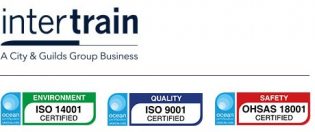We don’t often consider ‘thinking’ to be a skill. It’s something we do automatically. Nothing special.
However, critical thinking is a skill, and it’s arguably one of the most desirable skills to have in the workforce. It is the ability to think rationally, logically, and without bias to solve problems, form opinions, and make crucial decisions.
How do you develop critical thinking?
The exciting thing about critical thinking is that it incorporates several different skills. Mastering each of these individual skills is beneficial as a leader, but when you learn to combine them effectively, you can become formidable.
Be curious
A key trait of critical thinkers is curiosity. Ask questions. Question the answers. Probe further. Don’t take things at face value – dig deeper.
Question yourself. Have you explored every possibility? Have you acquired data from multiple sources? Are those sources unbiased? Could you use scientific methods to conduct your research – observation, hypothesis, prediction and testing?
Getting a comprehensive view of all available data will help you make more informed decisions.
Practice active listening
Deep listening involves paying attention to both verbal and nonverbal cues to ensure a complete understanding of the speaker’s perspective and message.
Full listening involves using active listening techniques, such as paraphrasing what’s been said to ensure you understand the speaker’s message.
Critical listening involves systematic reasoning to evaluate a speaker’s message and distinguish between fact and opinion – particularly useful when speakers may have a certain agenda or goal.
Working on these listening skills will help you develop your critical thinking skills.
Analyse data and evaluate evidence
Once you have gathered data through listening, questioning, and researching, you need to analyse that data. Weigh up the different arguments and explore different interpretations, viewpoints, and perspectives.
Evaluate the evidence that has been presented. Review the research methods used – how has the information been gathered?
Not everything will be relevant and not everything will be useful. Your job is to filter out the noise and focus on what is important.
Consider bias
Considering the potential for bias is a key part of critical thinking. Not just your own bias, but that of others too. Some of the key biases to be aware of are:
Confirmation bias – favouring information that aligns with our existing beliefs or past experiences.
Conformity bias – people agreeing with the views of the majority rather than sharing their own views.
Heuristics – mental shortcuts to simplify difficult decisions (e.g. using ‘rule of thumb’ or making ‘educated guesses’).
Framing – the way the information has been presented (e.g. ‘80% of customers were satisfied’ rather than ‘20% of customers were dissatisfied’).
You also need to be aware of common biases such as gender bias, ageism, and stereotyping.
Be self-aware and open-minded
Our own beliefs, values, and attitudes influence our behaviour and our thinking. If we aren’t aware of how these things can influence us, it can impact our ability to think critically or objectively.
For example, if we value honesty, we may judge someone harshly if they act dishonestly. This can prevent us from getting to the root of the problem – what caused them to act dishonestly?
Be open-minded. Not everyone will share the same beliefs, values, and attitudes as you. It is important to be respectful of other people – try to view things from their perspective.
What are the benefits of developing your critical thinking skills?
Critical thinking is useful in many areas of both your professional and personal life. It can make you a more open-minded and rational individual, who can look at all options and possible solutions before making decisions.
Make judgements and decisions based on facts
Living in the digital era means we are bombarded with information, opinions, and data on a whole array of subjects.
Critical thinking allows you to sort through all the noise and decide for yourself what to believe. This enables you to reach more objective conclusions based on logic and reasoning rather than thoughts and feelings.
Present your opinions more effectively
A crucial aspect of critical thinking is being able to analyse information and make connections between logical ideas to see the bigger picture.
Building these skills improves your ability to communicate your ideas and opinions. You’ll find it easier to present them logically and make reasoned arguments to support your ideas or decisions.
Improve problem-solving skills and creativity
Critical thinking means constantly asking questions and wanting to know more, about why, what, who, where, when, and everything else that can help you make sense of a situation or concept.
It enables you to remove limiting beliefs and take a more creative and innovative approach to problem-solving and business improvement. You can then apply logical thinking to evaluate the feasibility of an idea and bring it to life.
Improve relationships
Critical thinking can significantly improve your relationships with colleagues. You’ll be more open-minded and self-aware. You’ll recognise your own biases and you’ll be more respectful of other people’s beliefs, values, and attitudes.
You’ll be better at dealing with conflict and providing the right support. As a result, you’ll start to create a culture of openness and trust where your colleagues feel comfortable sharing their ideas, opinions, and concerns.
Improve your well-being and confidence.
Thinking critically gives you greater confidence. You start to trust yourself more because you know your judgment is based on reason and logic. Critical thinking becomes more of a natural process, and you feel confident trusting your instincts and sharing your opinions.
Critical thinking can also make you happier. Having a deeper understanding of why you think the way you think can make you feel more positive. It can help you overcome any negative or limiting beliefs and focus on your strengths.
Become a more effective leader
There are several well-known management theories and models, and your own beliefs, attitudes and values will influence your interpretation of these theories and models.
Maybe you are subconsciously drawn to Fielder’s contingency theory. Perhaps you lean towards Mcgregor’s Theory X and Theory Y. Or maybe your management style is very much rooted in Goleman’s Emotional Intelligence theory.
Being able to think critically will help you to assess the validity of management theories in relation to your own beliefs, attitudes and values.
You will also be able to evaluate and reach a conclusion as to how someone with different beliefs, attitudes and values might interpret the theory differently. This will help you become a more well-rounded leader.
Develop Your Leadership and Management Skills with Alternative Partnership
As a manager or leader, there’s always something new to learn or a skill you can improve and develop. Organisations need to support managers and leaders in this development, but you also need to invest in yourself.
Getting formal leadership and management training will not only help you build your leadership skills, it will also help you grow in confidence, and increase your chances of career progression.
Alternative Partnership delivers ILM-accredited Leadership and Management training programmes to support you and your teams in gaining formal, nationally recognised qualifications.
If you’d like to hear more about our current ILM courses or are interested in any of our services, get in touch.












